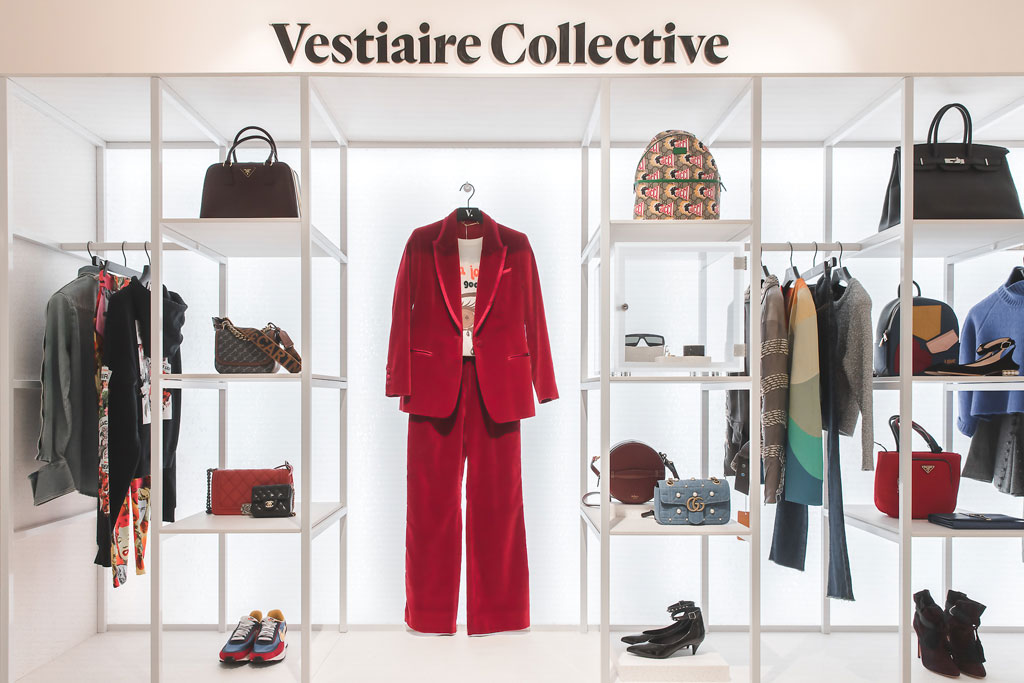
- HOME
- STYLE
Sustainability Terms Explained: Circular Fashion
Why the future of fashion has to be circular
By | 2 years ago
This week in our Sustainability Terms Explained series: circular fashion.
Sustainability Terms Explained: Circular Fashion
Traditionally, the fashion industry has been linear. Clothes are produced, bought, worn and thrown away – which means 30,000 tonnes of unwanted clothing end up in landfill each year. But things are changing. Like most industries, the fashion world is having to take a long, hard look at itself as the detrimental effects it’s having on the planet become increasingly apparent.
The term circular fashion was first used back in 2014 at a seminar in Sweden by Dr Anna Brismar, owner of the consultancy firm Green Strategy. It was a merging of two terms, sustainable fashion and circular economy, defined by Brismar as: ‘clothes, shoes or accessories that are designed, sourced, produced and provided with the intention to be used and circulated responsibly and effectively in society for as long as possible in their most valuable form, and hereafter return safely to the biosphere when no longer of human use.’

Penelope Chilvers
In short, circular fashion is about creating a cyclical lifespan for clothing. This means designers, retailers and customers taking a more considered approach to fashion, challenging the throwaway model. Garments should be designed with sustainability in mind – in terms of the concept, the materials and the production process. If and when owners don’t want an item anymore, it should be recycled or upcycled – and so the circle begins again. Ultimately, products and materials should be kept in circulation for as long as possible.
Stella McCartney told us: ‘We have to stop and consider the waste, it’s spiralled out of control. I think in order to have sustainability in fashion, you need to think in advance. You need to think about everything in a circular way and in its entirety and at the end of the day a lot of it is about waste, you know, “Waste not, want not, do unto the planet as you would have them do unto you”.’
How can we get involved?
The ‘reduce, reuse, recycle’ phrase is helpful here. To do our bit for circular fashion, we should be buying less, as well as re-wearing, upcycling or recycling old items. We can do this by:
Shop at online clothes stores
Buying second-hand is not only kinder to the environment, it allows you to find one-off, unique pieces from bygone eras. And while physically rummaging through the shelves of a thrift shop in search of hidden steals can be rewarding, shopping online provides a stress-free alternative. Check out sites like My Circular Wardrobe, Cudoni, Vestiaire Collective and Beyond Retro.

Use rental services
Instead of buying an outfit to wear once, consider renting from one of the many platforms now available. Names to know here include Girl Meets Dress, Rent the Runway and HURR.
Mindfully interrogate your reasons behind buying new
In a study published in Comprehensive Psychiatry released in 2019, more than 2.5 million people in the UK have an addiction to online shopping. Obviously, this is taken to the extreme, but the study explains that consumption is often used as an emotional management tool to negate feelings of anxiety and sadness (which is something we can all relate to). So really drill down on the root causes of why you buy new, as it can be a really effective way to stop overconsumption.
Buy from eco-friendly fashion brands
Aside from the pre-loved and vintage sector, a whole host of brands are changing their processes to be more sustainable, as well as creating dedicated eco-friendly collections. Check out our top picks here, which highlights brands like Bodgar, KALITA and NavyGrey. We’ve also pulled together the best sustainable shoe brands, activewear brands and swimwear brands.
Main image: The North Face x Gucci
READ MORE:
The C&TH A-Z of Sustainability / Sustainability Terms Explained: Carbon Neutral



